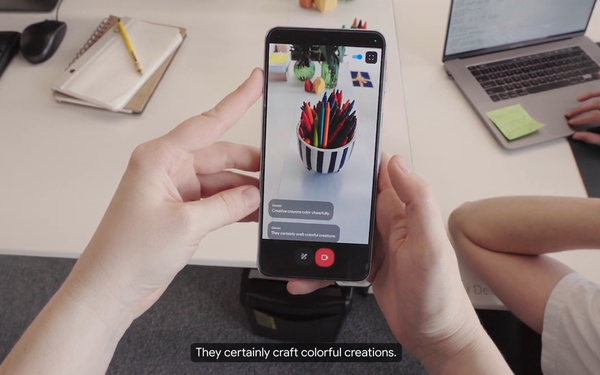Commentary
AI Emotions In Ads And Content: Will Consumers Embrace It?
- by Laurie Sullivan , Staff Writer @lauriesullivan, May 15, 2024

Google, Microsoft and OpenAI showed the world how artificial intelligence (AI) will highlight emotions as the technology develops. It will rely not only on the training of large language models (LLMs), but also on publicly available data connected to the questions and the intent.
While watching the presentations, I wondered whether people in general will adapt and accept the emotional responses from AI we heard this week.
"Personally, I do not think they are ready," Udayan Bose, CEO at NetElixir, wrote in an email to Search & Performance Insider. "But we all know Google has a strong track record of creating consumer habits. My answer may be different in 12 months."
advertisement
advertisement
The ad industry is moving out of the era of traditional search and into AI. And, out of the era of chatbots -- and into the realm of AI agents that can express emotion based on questions.
"As an advertiser, if it drives an increase in relevance, clickthrough rates, conversion, and more,"
said Brooke Hess VP of Paid Media at NP Digital. "While it sounds like a win, the concerning part is once users understand how they are being emotionally manipulated or think about it through that
lens, it could impact how people think of Google and push them to avoid advertisements intentionally, even more, as the rise of ad blockers could accelerate."
Emotions emerge through technology like Project Astra, which can process the real world through the lens of a mobile phone camera. It continually processes images and information that it sees and
can return answers even after it has moved past the object.
The companies acknowledge that the industry remains in the very early days with AI, but one thing stood out for me: how quickly and emotionally the AI agents responded dynamically to conversations and the change in direction of the conversation prompted by humans.
OpenAI GPT-4o quickly responded to requests from research leads Mark Chen and Barret Zoph for things like help to solve a math problem without giving away the answers.
New voice capabilities from OpenAI and Google appear to mimic human speech in actual conversations.
OpenAI said the latest version of its “voice mode” can respond to a person speaking on average in 320 milliseconds, which makes it seem more human-like.
In its announcement on Monday, Microsoft said it has integrated GPT-4o into Azure. The company also is scheduled to hold an AI event Wednesday afternoon.
No doubt we will see advertisers and marketers use emotion in ads and content within the coming year, but there is a creep-factor--how an AI agent can change an emotional stance based on a request. Will advertisers and marketers use it to augment a variety of paid media and organic content, and what type of measurement guidelines will be developed to attribute success?
Will AI Overview, which Google renamed Tuesday from Google Search Generative Experience (SGE), completely consume traditional search?
Users of Google AI Overview can now ask complex, multi-part questions in one query to get a complete answer such as “how do I get to the Wynn hotel in Las Vegas, how long will it take my from my destination, and where is the nearest gas station that sells diesel to fill up my truck before I get there?”
Still, with all the advanced tech, marketers are concerned. "Google wants to make the user experience the most customized for searchers through AI, but will still find a way to be profitable through monetization of the AI generated results pages," said Brook Hess, vice president of paid media at NP Digital. "We anticipate paid advertising to be incorporated into the AI features, but have yet to understand the true impact it will have on our client’s campaigns until it rolls out."
The plan is to monitor impacts to campaigns as the industry adapts to the new search-engine result pages (SERP) with paid advertising.
Nikki Lam, vice president of SEO at NP Digital, said the industry has been waiting for the "inevitable rise in clickless searches," and added that "now more than ever users will likely find what they need directly in the SERPs, putting organic traffic at risk for a growing number of queries."
Google’s technology has been upgraded to use multi-step reasoning. Google Vice President of Search Liz Reid called it an AI agent. In OpenAI’s presentation, they called the chatbot an AI agent as well.
Publishers should have little concern about losing site traffic. Reid wrote in a blog post: "we see that the links included in AI Overviews get more clicks than if the page had appeared as a traditional web listing for that query."
Reid wrote that as Google continues to focus on “sending valuable traffic to publishers and creators,” ads will appear in slots with clear labeling distinguish between organic and sponsored results.
Google CEO Sundar Pichai in an interview with CNBC basically said the company will not allow that to happen. He insists that AI Overviews make the search experience better, and that users will still value commercial information in ads and content, adding that it is “growing traffic to the ecosystem” when analyzing clicks year-over-year. “We are prioritizing approaches that will generate more traffic.”



